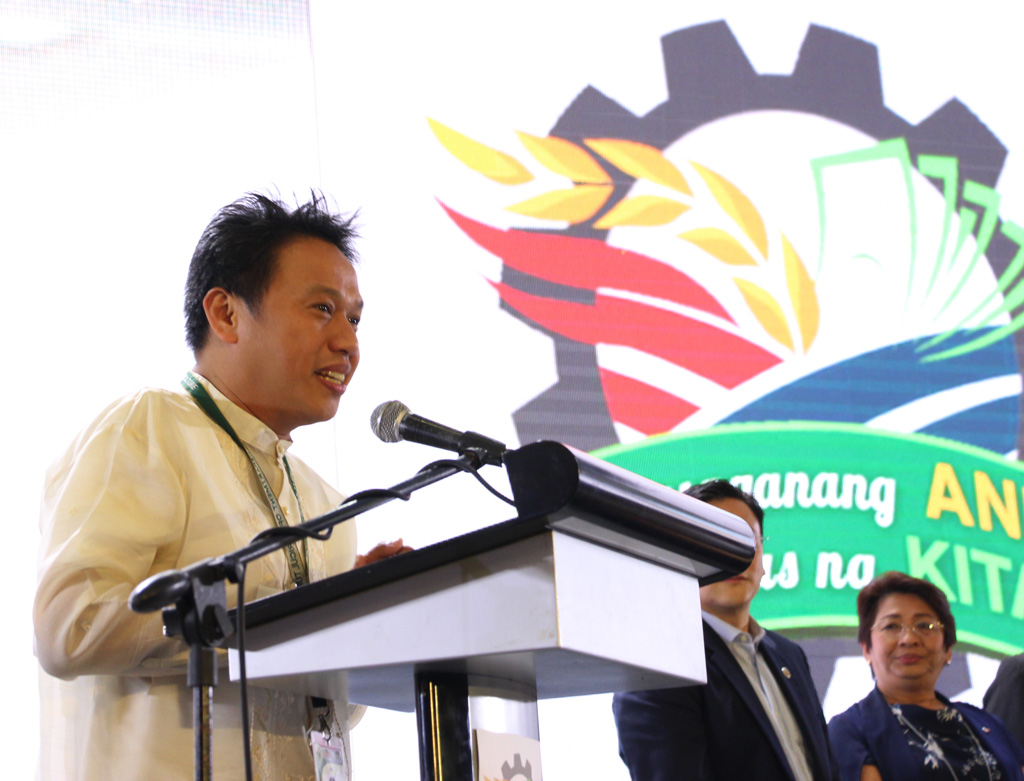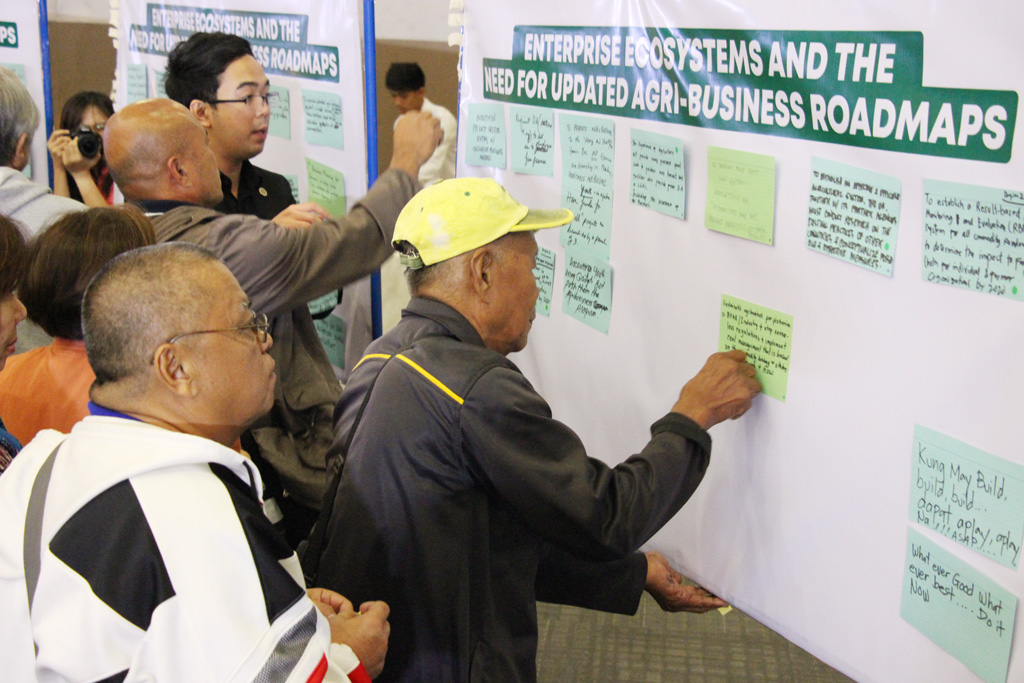
The Department of Agriculture (DA) taps the services of the Philippine Council for Agriculture and Fisheries (PCAF) in the conduct of Sulong Pilipinas Agribusiness Summit held on December 17, 2019 at the SM Convention Center in Davao City.
The summit, a collaboration with the DA, the Department of Finance (DOF) and the Department of Trade and Industry (DTI), aimed to gather insights from the industry stakeholders and expected to come up with actionable recommendations.
Spearheaded by the Special Assistant of the Secretary for PCAF Matters Dr. Liza G. Battad, the PCAF team facilitated the plenary workshops and breakout sessions of the summit in coordination with the assigned DOF rapporteurs.
“Today’s agenda is an urgent one. We know that our agricultural sector has been weak for decades. This has prevented the entire economy from accelerating to a full gallop,” said by DOF Secretary Carlos Dominguez during his welcome message.
Sec. Dominguez also said that “Sulong Pilipinas is a consultative forum that keeps the government in close touch with its citizens to crowdsource solutions. The outcome of Sulong Pilipinas helped President Duterte’s administration to implement the zero-to-ten-point socioeconomic agenda.”
On the other hand, DA Undersecretary for Policy and Planning and Project Development Rodolfo Vicerra delivered the keynote address in behalf of DA Secretary William Dar.
“Agriculture remains a major backbone of the economy. Collectively, agriculture, fishery and forestry account for P1.5 trillion or around 8 percent of our GDP and agriculture employs some 10 million Filipinos, or around one-fourth of the country’s total workforce,” said by USec Vicerra.
After the keynote address, the first plenary workshop followed where USec Vicerra discussed the overview of the Philippine agriculture and its current status. He also introduced Secretary Dar’s new thinking for the agriculture anchored on its eight paradigms in achieving “masaganang ani at mataas na kita.”
Afterwards, the rapporteurs assisted the participants for the breakout sessions. Each group had resource speaker(s) and moderator who discussed the following: 1) high value crops, 2) poultry and livestock, 3) grains, 4) fisheries, 5) coconut, 6) infrastructure, technology and financing for industrialization and 7) farm consolidation and clustering.
Issues and challenges per commodity / group were presented where the participants engaged in the table discussion and proposed actionable recommendations.
Then, each of the group’s rapporteurs facilitated in consolidating and selecting the top two actionable recommendations voted by the participants.
For the second plenary workshop, the topics were on agricultural reforms. These were the Enterprise Ecosystems and the Need for Updated Agribusiness Roadmaps and the Province-led Agriculture and Fishery Extension Systems (PAFES).

USec Vicerra presented the existing roadmaps per commodity. He said “roadmaps must adopt a common timeline, must incorporate the value-chain approach and must ensure the presence of ani and kita.”
Then, Dr. Rex Navarro of DA-Technical Working Group on PAFES said “that technology is the engine of agricultural modernization and the one that brings technology to the farmers is through extension.”
“Ito po ang ating problema and I’m sure lahat po nang nasa kwarto ngayon ay papanig po sa akin na ang national system ng extension ay the Agricultural Training Institute pero tingnan ninyo wala siyang hawak na probinsya tsaka sa munisipyo and take note of probinsya, tatlong opisina po yan agriculturist, veterinarian at meron pang fisheries,” emphasized by Dr. Navarro.
Rounding up the last plenary workshop, four model farmer-entrepreneurs were invited to present their best practices and the challenges they encountered. These model farmers include Cherrie Atilano of Agrea Agricultural Systems International, Jonathan Co of Manly Plastics Inc., Julius Alfie Barcelona of Harbest Agribusiness Corporation and Rachel Marjorie Renucci-Tan of Cheng Yi Agventures.
After the plenary workshop, the four model farmers participated in a panel discussion together with the officials and representatives from DA, DOF, DTI, Landbank and Development Bank of the Philippines.
In behalf of the Philippine government, DA USec for Operations Engr. Ariel T. Cayanan accepted the top recommendations presented by the participants. “These recommendations will be presented to the Cabinet and seriously considered for the inclusion in our country’s strategy for agricultural development in the second half of this administration,” he said.
“We therefore welcome the recommendations offered by representatives of the different farming and fisheries subsectors. These recommendations will be studied and ultimately addressed with the same decisiveness, with the same tapang at malasakit, that this administration is committed to,” said by USec Cayanan. | JD











